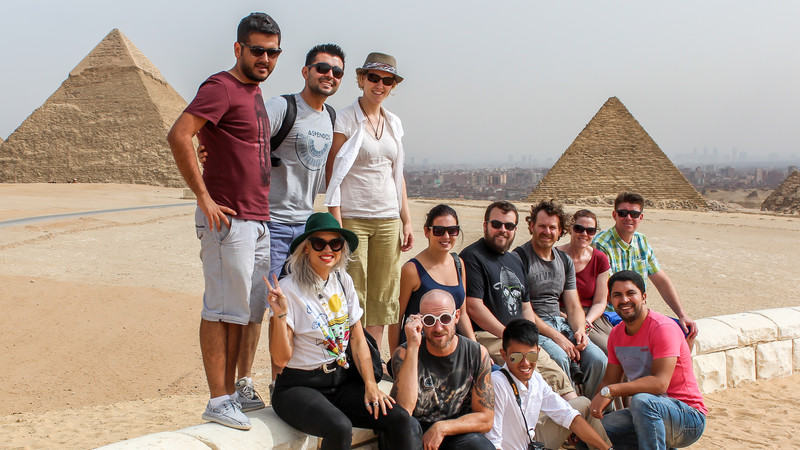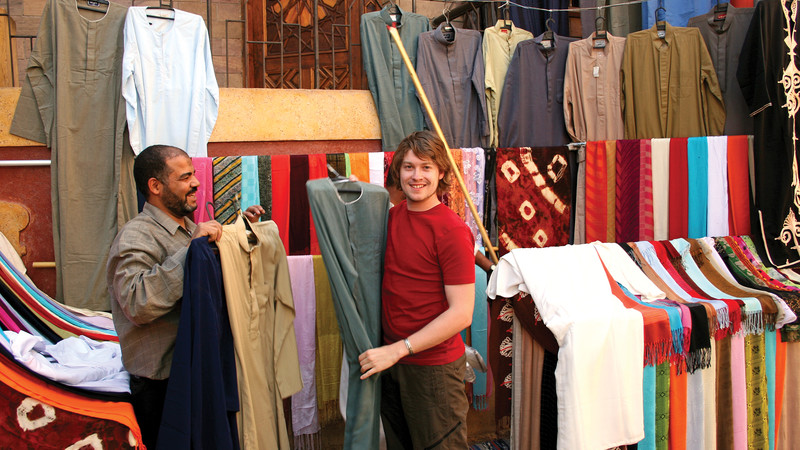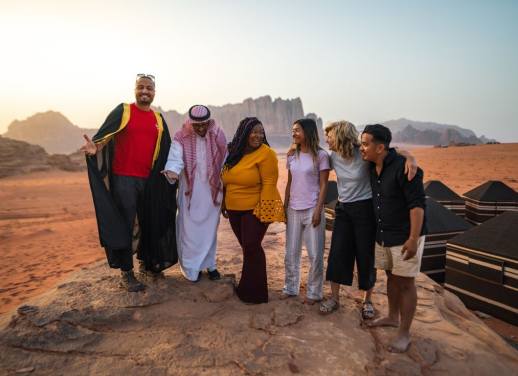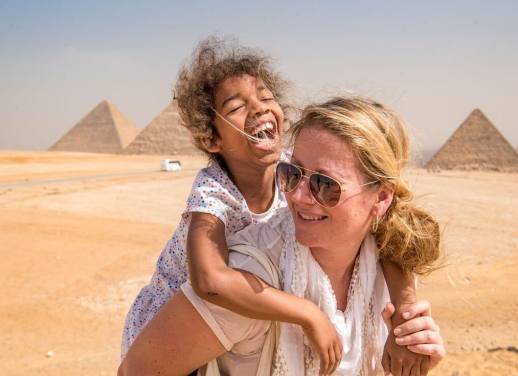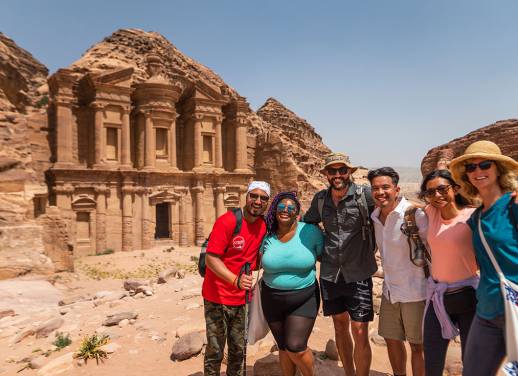Back on bucket lists after a brief hiatus, Egypt is quickly regaining its former popularity and it’s easy to understand why. From ancient wonders to relaxing Nile cruises, bustling local souks to taste bud tingling cuisine – what’s not to like?
However, even in spite of its recent revival, you still wouldn’t describe Egypt as a fuss-free destination. Arranging visas, packing appropriately and choosing between a multitude of different transport options can make it a little overwhelming for first-time visitors. So, to ensure you’re prepared for your upcoming Egyptian adventure here’s everything you should know before you go.
Visas
First things first, everyone apart from citizens from a small handful of countries needs a visa to enter Egypt. You can obtain one from your local Egyptian Consulate ahead of travelling. Or, on arrival from an approved bank kiosk at the airport before making your way through immigration. Visas granted on arrival are valid for 30 days and cost US$25.
There has also been an exciting new development on the Egyptian visa front, with the recent introduction of an e-visa service. Available to residents from 46 countries including the UK, USA and Australia, it’s valid for a maximum of three months. The local government are hoping this will speed up the entry process and encourage more people to apply for a visa ahead of their visit to Egypt.
BOOK NOW: EXPERIENCE THE MAGIC OF EGYPT ON THIS 8-DAY ADVENTURE
Money
Egyptians use the Egyptian Pound (LE), which is broken down into 100 plastres and notes come in 5, 10, 20, 50, 100 and 200 denominations. You won’t have trouble exchanging widely-used currencies like GBP, USD and EUR on arrival, and exchanges and ATMs can be found in all major towns and cities.
Getting change from larger bills can be tricky, and so always do your best to have access to a supply of coins and smaller notes. These come in handy when paying tips or ‘baksheesh’, which you’ll be doing on a daily basis for all sorts of reasons from receiving directions to payment for toilet paper. In a country where wages are extremely low, this is an important way for the poorest locals to supplement their income. This practice isn’t just reserved for travellers either as Egyptians constantly have to dish it out too.
Haggling is also a huge part of the culture in Egypt, so be sure to pack your best bargaining skills. You can barter the price of almost anything here from souvenirs to taxi rides. It can be great fun if you get into the spirit of things and could end up saving you some money too! A few hot tips would be: don’t start haggling unless you’re really interested, have a price in mind, always ask the vendor to start the bidding and then take it in turns to adjust your price.
RELATED: 7 MUST-VISIT DESTINATIONS IN EGYPT THAT AREN’T THE PYRAMIDS
Safety
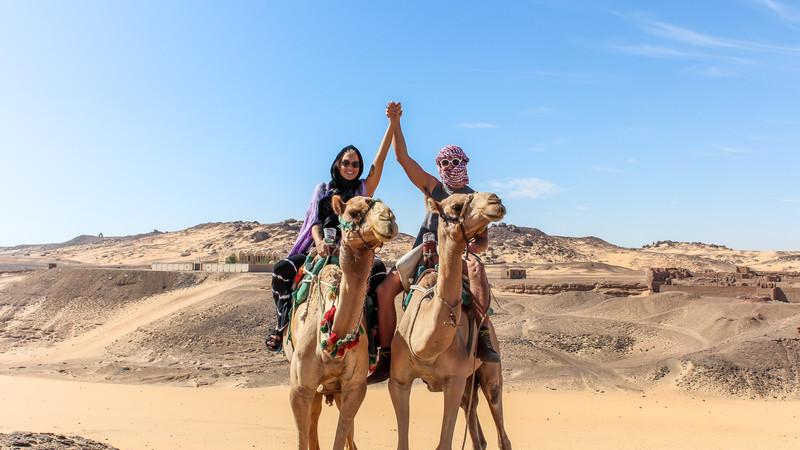
Photo captured by Nathan & Teagan
It’s no secret that Egypt has received a fair amount of bad press in recent years, following a spate of terrorist attacks in 2015. However, since the Egyptian government put a new counter-terrorism strategy in place the situation has improved dramatically. Of course, as with anywhere, you’re advised to keep your wits about you, but tourist-friendly areas like Cairo, Alexandria and various spots along the Nile are widely considered safe to travel to. If you’re not sure about a particular destination, be sure to check your government’s website for the most up-to-date travel advice.
If you’re feeling a little anxious about tackling Egypt as a solo traveller, joining a small group tour is a great way to go. Not only will you be in safe hands by travelling alongside an expert local leader who knows the country like the back of their hand. But you’ll also have the comfort of “safety in numbers”, as you explore the sights with a bunch of like-minded people.
One thing you’re bound to experience in Egypt is unrivalled hospitality, which will leave you feeling right at home. Everyone from market stall vendors and local school kids will welcome you warmly. Don’t be alarmed if people want to know where you’re from or are eager to take a selfie with you – it’s all harmless curiosity.
RELATED: WHY YOU SHOULD IGNORE THE HEADLINES AND VISIT EGYPT NOW
Food and drink
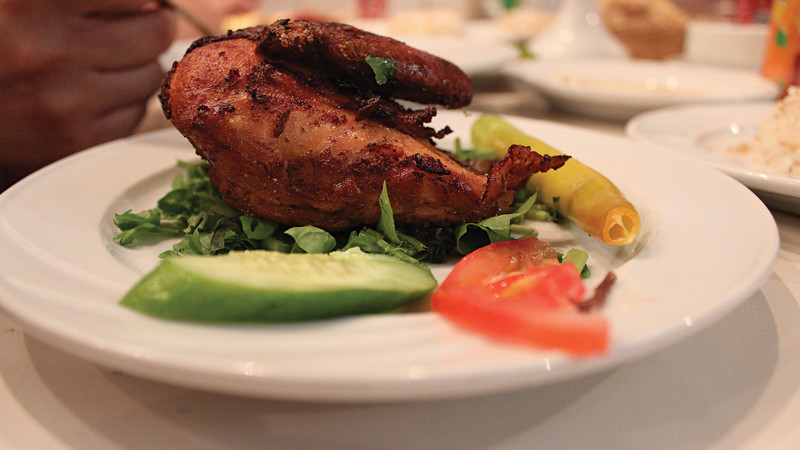
Photo captured by Lizzie Mulherin
In short, Egyptian cuisine is delicious but severely underrated. Do your best to eat in local establishments and introduce yourself to some of the country’s most popular dishes. One meal you absolutely must try is koshary, which is made from pasta, rice, lentils, chickpeas, fried onions and topped with tomato sauce. Ta’ameya (Egyptian-style falafel) and fiteer baladi (an Egyptian pizza-cum-naan) are two more plates you should definitely aim to tick off your foodie bucket list.
Egypt is a Muslim country and so (unsurprisingly) alcohol is not readily available for purchase, but it’s by no means illegal. Whilst it’s prohibited to sell and consume alcohol in public places or shops, you will find it in some hotels and restaurants. Although, fresh fruit juices make for a delightfully refreshing alternative in the heat!
OK, so this might seem like an obvious one, but try to avoid drinking the tap water in Egypt as it’s not properly filtered and may cause an upset stomach. You’re advised against using it to brush your teeth too. Also steer away from ordering salads that may have been washed with tap water and stick to fruits and vegetables that can be peeled.
RELATED: 6 EGYPTIAN DISHES YOU NEED TO TRY
Dress code
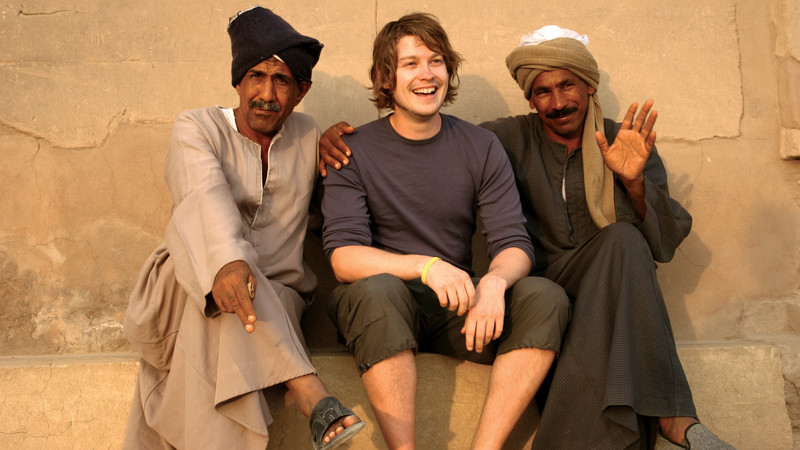
Photo captured by Sally Johnston
Remember a vast majority of the Egyptian population are Muslim and so dressing conservatively here is a must. Women should ensure their chest, knees and shoulders are covered. It’s fine to wear trousers, but the looser the better and in the heat you’ll be grateful for that. Men should also wear long or cropped trousers and baggy shirts or t-shirts. As a general rule, the less skin on show the better!
Strolling around Egypt and exploring the ancient sights will require a fair bit of walking, so choose comfortable shoes. You’ll also find that the roads and pavements get pretty dusty and so to avoid getting filthy feet, go for closed shoes over flip flops or sandals.
GO NOW: DISCOVER EGYPT AND JORDAN ON THIS 15-DAY EPIC
Toilets
Broadly speaking there aren’t many public toilets in Egypt and so it’s not unusual to use one in a hotel or restaurant even if you’re not a paying customer. As you might expect, toilet paper is rarely provided except occasionally when a toilet attendant may give it to you for a small cost. Soap isn’t very common either, and so carrying both toilet paper and a small bottle of hand sanitiser is a good practice to get into. It also helps to be aware that some toilets will be the ‘squat’ kind.
Cultural etiquette
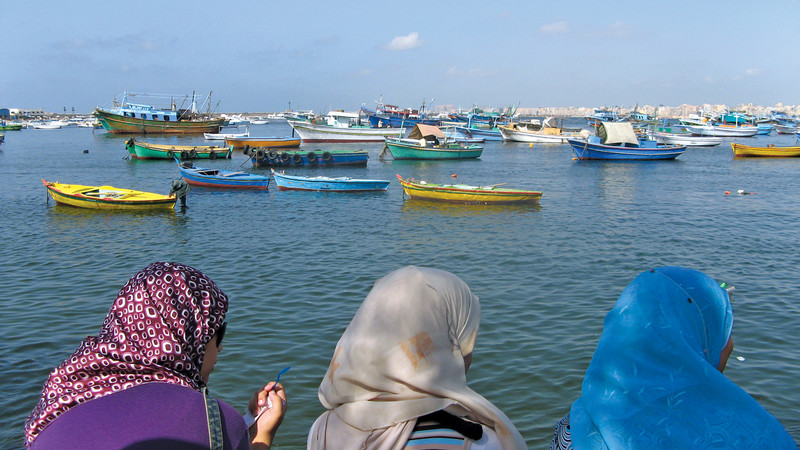
Photo captured by Amanda Hamilton
Put simply, displays of physical affection are a no-no. Although it’s common to see Egyptian men greeting one another with hugs and kisses, members of the opposite sex need to refrain from physical contact until they’re back in the privacy of their hotel room.
Another really important thing to know is that the left hand is thought of as unclean because it’s used to remove shoes and clean yourself after using the toilet. So, to avoid unnecessary embarrassment or causing offence, always use your right hand for eating with or when giving someone a gift.
RELATED: A TRAVELLER’S GUIDE TO LOCAL EGYPTIAN ETIQUETTE
Transport
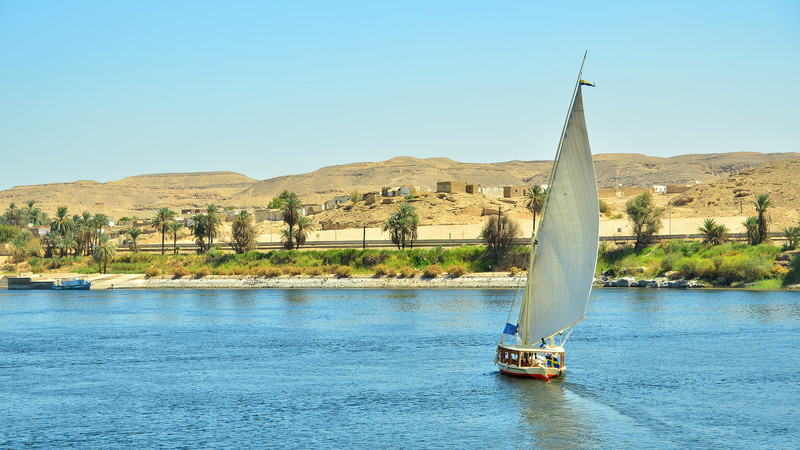
Elzbieta Sekowska/Shutterstock
Part of the joy of travelling in Egypt is sampling the many modes of transport on offer and the overnight train is a great one to kick off with. Each carriage is made up of 10 lockable cabins and a unisex toilet. Sleeper cabins are cosy with two berths, a space to store your luggage and a small sink. You’ll be provided with pillows, sheets and blankets along with dinner and breakfast. The meals are fairly basic, so you may wish to bring along your own water and snacks to supplement them.
SUBSCRIBE TO OUR NEWSLETTER FOR TRAVEL TIPS, OFFERS, COMPETITIONS AND MORE
No trip to Egypt would be complete without a night spent cruising down the Nile on a felucca, a traditional wooden boat with broad canvas sails. There aren’t any cabins onboard, meaning you’ll be sharing the deck with your fellow travellers. You’ll sleep outside on a simple mattress and whilst there’s a wooden ceiling to shelter you, you’re essentially camping out in the open. If you tend to feel the cold, it’s a good idea to bring your own sleeping bag, although these can be rented locally for a small fee. A pack of cards or a book is also a welcome addition. As for the food, your Nubian crew will prepare hearty Egyptian meals for you to enjoy along the way.
Looking for a slightly more luxe experience? Climb aboard a Nile riverboat! Complete with a restaurant, bar, swimming pool, sundeck and ensuite cabins with Nile views – this couldn’t be more different from the felucca. Travelling in this way means you’ll have the chance to disembark daily and explore the local ancient sights dotted along the riverbanks. Bear in mind that there are between 50 and 70 cabins on these vessels, and so you’ll be sharing these facilities with quite a few others.
TRAVEL SOON: GET UNDER THE SKIN OF EGYPT AND JORDAN ON THIS 22-DAY TOUR
Now you’ve got the inside scoop, go forth and book your Intrepid Egyptian adventure today!

